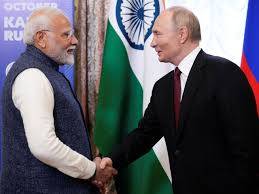How the BRICS Alliance Could Challenge the Western World Order
In recent years, the BRICS alliance—comprising Brazil, Russia, India, China, and South Africa—has emerged as a formidable coalition on the global stage, signalling a potential shift in the balance of power away from traditional Western dominance. As economic and political dynamics evolve, the BRICS nations are increasingly asserting their influence, challenging the established Western world order characterized by U.S. hegemony and Eurocentric policies.
Economic Clout and Development
One of the most significant ways the BRICS alliance is poised to challenge the Western world order is through its collective economic strength. The member countries represent nearly 40% of the global population and encompass a significant portion of the world's economic activity. Together, they are leveraging their resources to create alternative economic institutions, such as the New Development Bank (NDB), which aims to provide funding for infrastructure and sustainable development projects in emerging economies.
By promoting trade among themselves and with other developing nations, BRICS is fostering a multipolar economic landscape. This approach reduces reliance on Western financial systems and institutions, such as the International Monetary Fund (IMF) and the World Bank, which have traditionally been viewed as instruments of Western influence. The NDB and the Contingent Reserve Arrangement (CRA) demonstrate the bloc's intent to create a financial safety net that could offer an alternative to Western-led economic frameworks.
Political Influence and Global Governance
The BRICS nations are also increasingly vocal in advocating for reforms in global governance structures. They call for a more inclusive international order that reflects the realities of a multipolar world, where emerging economies play a significant role. This includes demands for greater representation in institutions like the United Nations Security Council and a revaluation of the policies that favour Western nations.
Furthermore, BRICS countries often collaborate on key international issues, including climate change, trade, and security. By presenting a united front, they challenge Western narratives and policies, pushing for solutions that consider the interests and perspectives of developing nations. This collective action can significantly impact international negotiations and agreements, creating a counterbalance to Western dominance.
Geopolitical Tensions
The BRICS alliance has also gained prominence amid rising geopolitical tensions, particularly between the U.S. and China. As the U.S. seeks to maintain its influence through strategic alliances and military presence, BRICS represents a counterweight that emphasizes sovereignty and non-interference in domestic affairs. The alliance’s emphasis on mutual respect and cooperation resonates with many countries in the Global South, who seek alternatives to Western interventionist policies.
Moreover, the BRICS nations have begun to explore closer ties with other regional blocs, such as the Shanghai Cooperation Organization (SCO) and the African Union (AU). By expanding their networks, BRICS is positioning itself as a leader in a more diversified global order, one that prioritizes the interests of developing nations and fosters economic cooperation.
Conclusion
The BRICS alliance is poised to challenge the Western world order through its economic strength, political influence, and emphasis on a multipolar global governance system. As the member countries continue to collaborate on various fronts, they are redefining international relations and creating a space for emerging economies to assert their interests. While the traditional Western powers may resist these changes, the momentum behind BRICS indicates a significant shift in global dynamics, one that could reshape the future of international politics and economics. As the world watches, the evolution of BRICS could signal a new era where power is more equitably distributed, challenging the long-standing dominance of the West.


